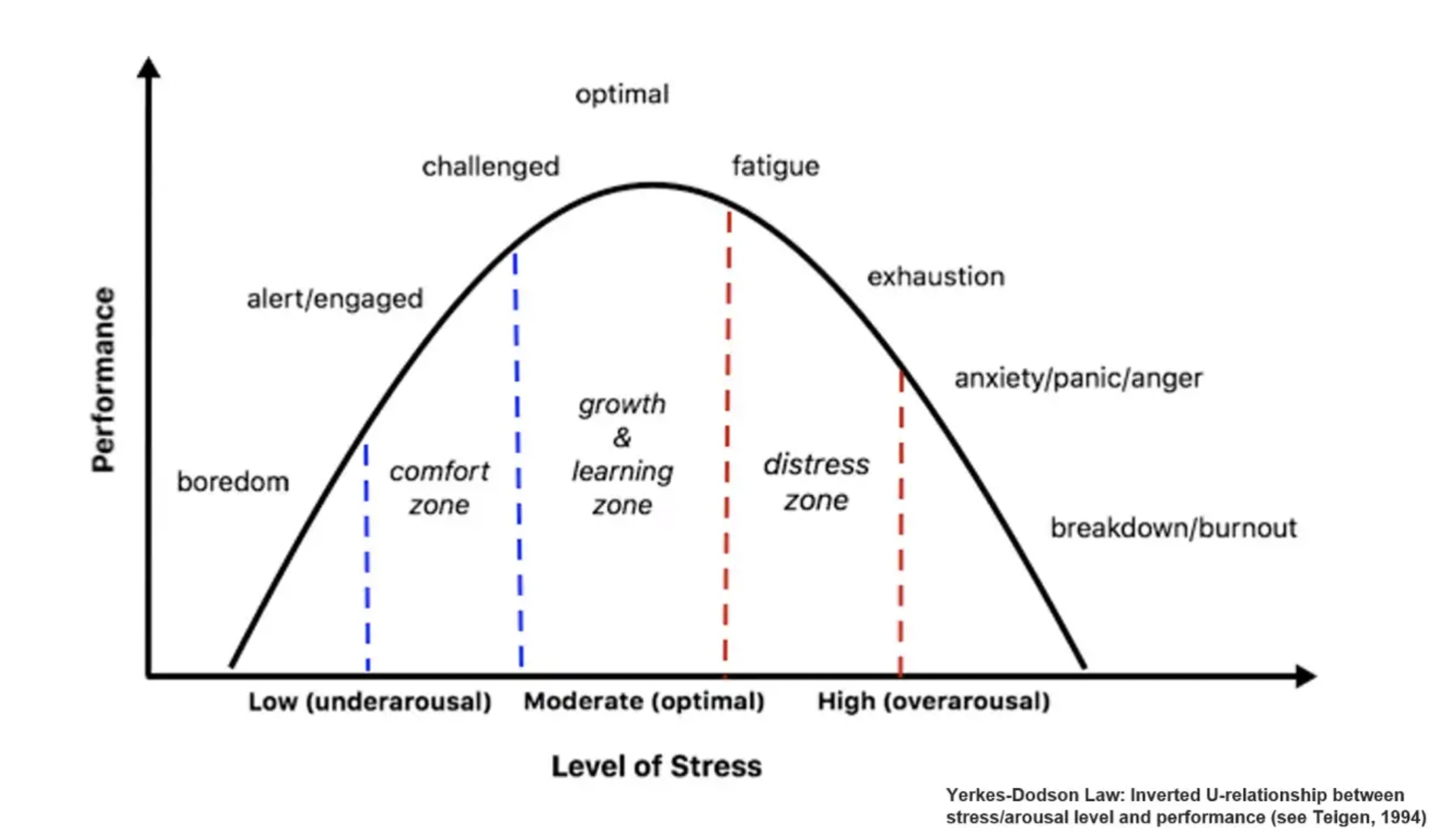Ask a psychologist: Practical tips to manage stress
For many, this is an especially busy time of the year. If you are feeling overwhelmed, consider the following stress management tips.
Keep in mind that stress isn’t a bad thing
There is a well-known Yerkes-Dodson Law that suggests there is such a thing as an “optimal” level of stress. This is illustrated below:
Teigen, 1994
This above figure shows that poor performance is associated with either too low or too high of stress. Stress motivates us to work toward solving our problems, but when we are constantly stressed, it leads to feelings of overwhelm, anxiety, and eventually burnout. Reframing thoughts to view moderate stress as an acceptable emotion, or as a tool, has been found to improve responsivity to stressors.
Talk about your problems, even if they won’t be solved
Talk about your stressors — even if you don’t solve them — releases hormones in your body that reduce the negative feelings associated with stress. Time spent talking with friends and loved ones is valuable, even when you have a lot on your plate. In particular, communication that is rooted in fondness and positive regard can help improve stress response. Extensive research also demonstrate that talk therapy can help buffer the physiological impact of stress by improving immune functioning.
Prioritize your responsibilities
Focus on completing quick tasks first. Having too many “to-dos” can be stressful, even if none of them are very big. Quickly knocking out the small tasks will clear up your mind to focus on larger responsibilities. This process may also have the benefit of igniting momentum needed to start the bigger tasks and overcome procrastination.
Focus on the basics
Stress can start a harmful cycle where basic needs are neglected, which leads to more stress. Make a point to focus on your basic needs, such as eating well, keeping a healthy sleep schedule, exercising, and other forms of self-care.
Don’t put all your eggs in one basket
People who are overinvolved in one aspect of their life often struggle to deal with stress when that area is threatened. Balance your time and energy between several areas, such as your career, family, friendships, and personal hobbies.
Set aside time for yourself
Personal time usually gets moved to the bottom of the list when things get hectic. However, when personal time is neglected, everything else tends to suffer. Set aside time to relax and have fun every day, without interruptions.
Keep things in perspective
In the heat of the moment, little problems can feel bigger than they are. Take a step back, and think about how important your stressors are in a broader context. Will they matter in a week? In a year? Writing about your stressors will help you develop a healthier perspective.


